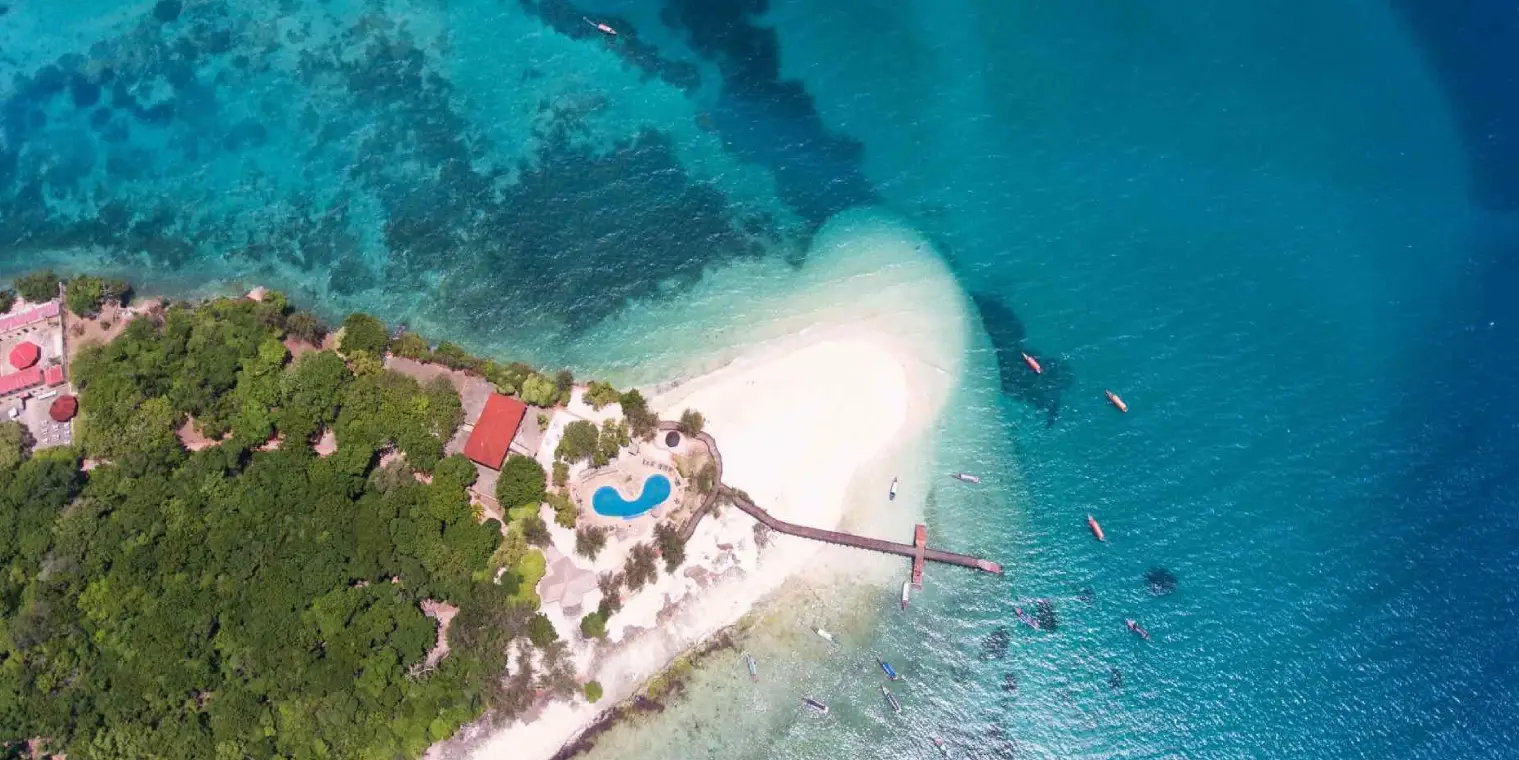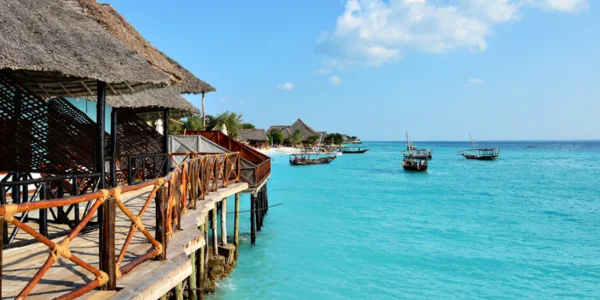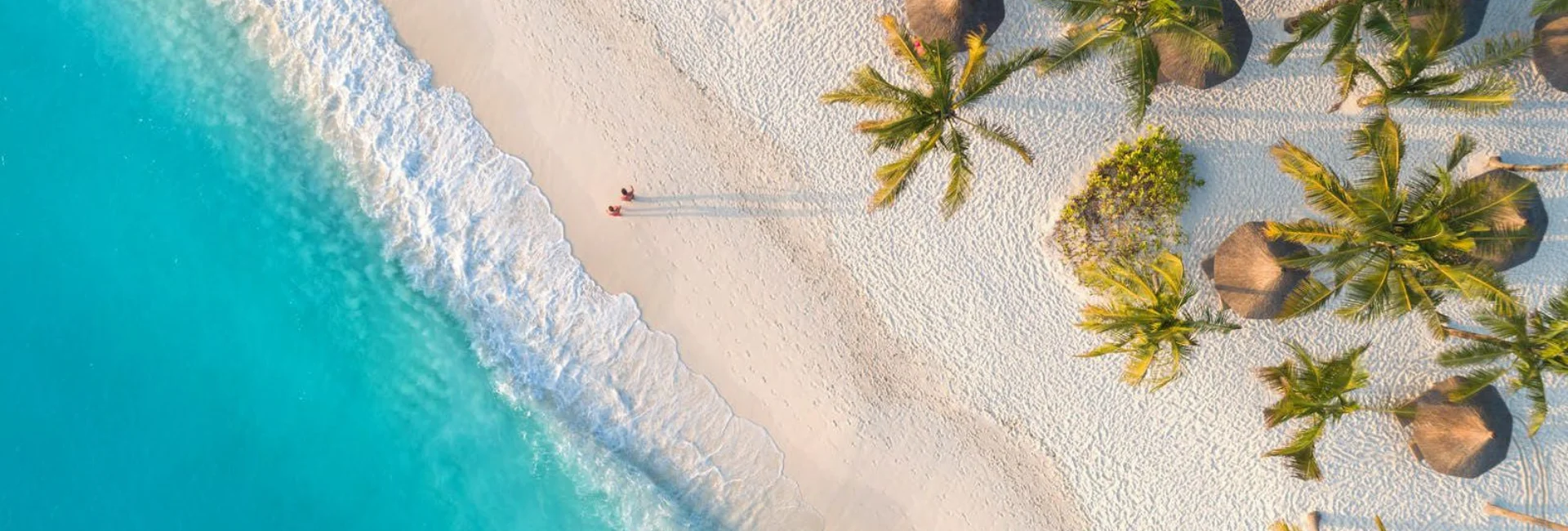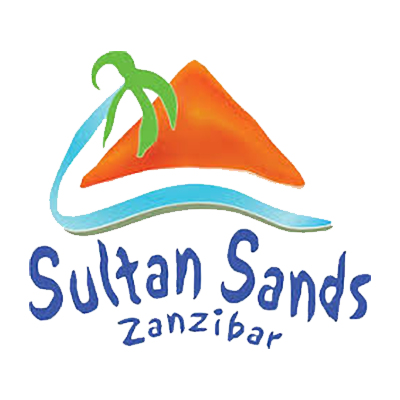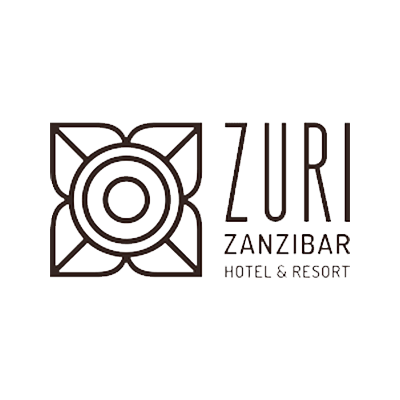Where Is Zanzibar?
Zanzibar is an Island off the east coast of Africa, part of the United Republic of Tanzania. The islands include Unguja (often called Zanzibar Island) and Pemba Island, among others. Located just south of the equator, Zanzibar enjoys a tropical climate perfect for year-round travel. Zanzibar is a country that forms a union within the United Republic of Tanzania.
Zanzibar’s Geographical Coordinates
Precisely, Zanzibar’s geographical coordinates are approximately 6.1654° S latitude and 39.1989° E longitude. This places it in the southern hemisphere, just south of the equator, and off the eastern coast of the African continent. This tropical location ensures year-round appeal for sun, sea, and sand enthusiasts.
The Unique Status of Zanzibar
Zanzibar boasts its own government and constitution, offering a unique degree of autonomy within the United Republic of Tanzania. While it enjoys self-governance in certain matters, Zanzibar remains an integral part of Tanzania through the union agreement. With its own president and legislature, Zanzibar’s semi-autonomous government manages various internal affairs, including education, healthcare, and tourism. This autonomy sets it apart as a distinctive entity within Tanzania.
Domestic Flights
If you’re traveling from mainland Tanzania, numerous domestic flights connect major cities with Zanzibar. These flights offer a quick and convenient way to reach the island.
Ferry from Dar es Salaam
For a more scenic option, consider taking a ferry from Dar es Salaam to Zanzibar. Though it takes longer than flying, the ferry ride offers stunning views and a memorable travel experience.
Visa Information for Visiting Zanzibar
Traveling to Zanzibar requires proper documentation, including a visa, depending on your nationality. Here’s what you need to know about obtaining a visa for your trip to this beautiful archipelago.
International Flights and Zanzibar Airport
Several international airlines offer direct flights to Abeid Amani Karume International Airport (ZNZ) on Zanzibar Island. Abeid Amani Karume International Airport is a busy hub, with approximately 75 flights arriving and departing each day. This high volume of flights ranks Zanzibar Airport as the 10th busiest airport in Tanzania, reflecting the island’s popularity as a travel destination. Here are ten airlines that connect major global cities to Zanzibar:
- KLM Royal Dutch Airlines – Flights from Amsterdam
- Qatar Airways – Flights from Doha
- Turkish Airlines – Flights from Istanbul
- Emirates – Flights from Dubai
- Ethiopian Airlines – Flights from Addis Ababa
- Kenya Airways – Flights from Nairobi
- Swiss International Air Lines – Flights from Zurich
- British Airways – Flights from London
- Air France – Flights from Paris
- Condor – Flights from Frankfurt
Cultural Etiquette and Guidelines for Visiting Zanzibar
Dress Modestly
Zanzibar is predominantly Muslim, and modesty in dress is important. Here are some guidelines:
- Cover Shoulders and Knees: For both men and women, it’s respectful to cover shoulders and knees, especially when visiting religious sites or local communities.
- Swimwear: Swimwear should be limited to the beach or pool areas. Wear cover-ups or sarongs when walking to and from these areas.
- Traditional Clothing: Wearing traditional attire such as kanga or kitenge can show respect for the local culture, especially during cultural events or village visits.
Respect Local Traditions and Religious Practices
- Mosque Etiquette: When visiting mosques, remove your shoes before entering, dress modestly, and avoid disturbing prayers. Women may need to cover their heads with a scarf.
- Ramadan: During Ramadan, avoid eating, drinking, or smoking in public during daylight hours as a sign of respect for those fasting.
- Greetings: Use local greetings such as “Jambo” or “Habari” when meeting people. A handshake is common, but it’s often best to wait for a woman to extend her hand first if you’re a man.
Photographing People
- Ask for Permission: Always ask for permission before taking photos of people, especially in rural areas or during religious ceremonies.
- Respect Privacy: Avoid taking photos of individuals in sensitive situations or in areas where photography is prohibited.
Behavior in Public
- Public Displays of Affection: Public displays of affection are generally frowned upon. Keep gestures private and respectful.
- Noise Levels: Be mindful of noise levels, especially in residential areas and during religious or cultural events.
Interactions with Locals
- Politeness and Respect: Use polite language and show respect in your interactions. Simple courtesies go a long way in fostering positive relationships.
- Negotiating Prices: When shopping in markets or street stalls, bargaining is common. Approach negotiations with a friendly attitude and respect for the seller..
Cultural Sensitivity
- Respect Local Customs: Familiarize yourself with local customs and practices. Understanding cultural norms can help avoid unintentional disrespect.
- Support Local Crafts: Purchasing locally made crafts and products supports the local economy and promotes cultural preservation.
Environmental Responsibility
- Littering: Avoid littering and dispose of waste properly. Respect the natural beauty of Zanzibar by keeping beaches and public areas clean.
- Wildlife and Nature: Respect wildlife and natural habitats. Follow guidelines for interacting with wildlife and participate in eco-friendly tours.
Yellow Fever in Zanzibar: Essential Information for Travelers
Zanzibar, a beautiful archipelago off the coast of Tanzania, is a popular destination for travelers seeking stunning beaches, rich culture, and unique wildlife experiences. However, it’s crucial to be aware of health precautions, particularly concerning yellow fever, to ensure a safe and enjoyable trip.
What is Yellow Fever
Yellow fever is a viral disease transmitted by infected mosquitoes, primarily found in tropical and subtropical areas of Africa and South America. Symptoms can range from mild fever and chills to severe liver damage and even death. While Zanzibar itself has a low risk of yellow fever transmission, travelers coming from or passing through regions with yellow fever may need to take precautions.
Precautions before Visiting Zanzibar
Vaccination:
The most effective way to prevent yellow fever is through vaccination. It is generally recommended for travelers aged 9 months and older who are visiting areas where yellow fever is present.
Ensure you receive the vaccine at least 10 days before your trip, as this is the time it takes for the vaccine to become effective.
Travel Health Certificate:
Some travelers may be required to present an International Certificate of Vaccination for yellow fever (commonly known as the “yellow card”) upon arrival in Zanzibar, especially if coming from a country where yellow fever is endemic.
Check with your local health authorities or the Tanzanian embassy for the latest entry requirements regarding yellow fever vaccination.
Mosquito Prevention:
Regardless of yellow fever vaccination, it’s important to take general precautions against mosquito bites:
- Use Insect Repellent: Apply an insect repellent containing DEET or picaridin on exposed skin.
- Wear Protective Clothing: Opt for long sleeves, long pants, and socks, especially during dawn and dusk when mosquitoes are most active.
- Stay in Screened or Air-Conditioned Accommodations: Ensure that your lodging has proper mosquito nets or screens to keep insects out.
Health Insurance:
Consider obtaining travel health insurance that covers medical expenses related to yellow fever and other travel-related illnesses.
What to Do If You Experience Symptoms
If you develop symptoms of yellow fever after traveling to Zanzibar or any yellow fever-endemic area, such as fever, chills, loss of appetite, or muscle pain, seek medical attention immediately. Inform healthcare professionals about your travel history and any vaccinations received.
Travel Insurance for Zanzibar: Essential Considerations
It is Mandatory for all foreigners and visitors entering Zanzibar through the seaport or airport to have travel insurance, with the following exceptions:
- Individuals who possess residence or work permit.
- Cabin crew members staying, below 72 hours
- Transit passengers transferring, between terminals during a flight change
- Emergency landing passengers.
It is crucial to have comprehensive travel insurance when planning your trip to Zanzibar, as it provides peace of mind and financial protection against unexpected events that may occur during your travels. Here’s what you need to know; For further info on this visit https//www.visitzanzibar.go.tz
Infrastructure Fee in Zanzibar:
This fee is usually paid upon check out directly by the clients at their accommodation.
How to Reach Zanzibar?
Move the information currently under "The Unique Status of Zanzibar" regarding ways to reach Zanzibar into this new section. This will help clients easily understand their travel options.
Where to Stay in Zanzibar: Accommodation Options
Zanzibar offers a wide range of accommodation options to suit every traveler's needs, from luxury resorts to budget-friendly guesthouses. Whether you seek a beachfront escape, a cultural experience in Stone Town, or a tranquil retreat in the lush interiors, there’s something for everyone. Here’s a guide to some of the best places to stay in Zanzibar.
- Luxury Resorts
- Boutique Hotels
- Guesthouses and Budget Accommodations
- Beachfront Villas and Rentals
- Unique Experiences


